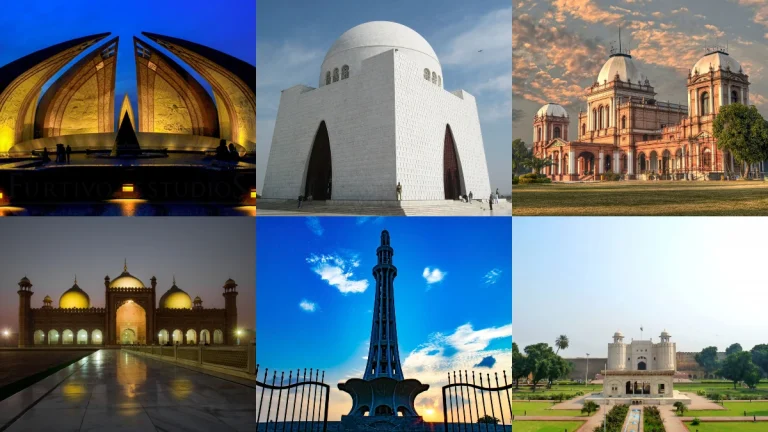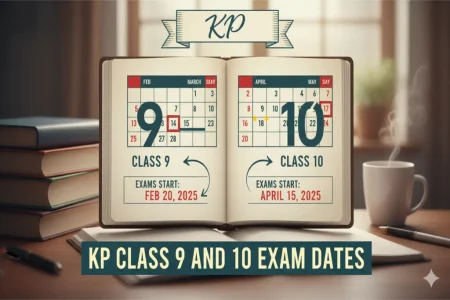Pakistan cityscapes are changing at an alarming rate in 2025. Amidst the increasing population, thriving incomes, and increasing investment in infrastructures, there are numerous cities that are becoming a great place to reside. Livability is not only a good salary but also includes safety, clean air, good transport, good education, cheap healthcare, rich culture and feeling of belongingness. As an expat, migrant, or a Pakistani interested in relocating, it is necessary to understand the cities that provide the most favorable experience.
Major considerations that can be used to determine a livable city.
1. Infrastructure and connectivity
This section concentrates on physical, financial, and technical considerations of network availability.
• Well-developed road infrastructure, comfortable mass transit, and intelligent traffic control.
• Electricity, clean water, and internet that is high-speed.
2. Safety & Security
Low rates of crime, good policing and good emergency services.
3. Health & Education
• Availability of hospitals, clinics and wellness centers.
• Well known schools, colleges and universities.
4. Economic Opportunities
Good employment opportunities, industrial diversification and entrepreneurship.
5. Environment & Green Spaces
• Parks, recreational facilities, and anti-pollution activities.
6. Cultural Vibrancy Culture
As cultural diversity and variation have increased, social interactions have become more complex and varied.
Some considerations include:
- Food
- Celebrations
- Culture
- Friendly people
7. Affordability and Cost of Living
- Affordable housing charges
- Transportation
- Living standards
This is the basis of any livability assessment and is used to identify the cities that will always be at the top in the year 2025.
Islamabad: The Capital of the premier
Islamabad is still at the top of the list of Pakistani cities with high quality of life. It has a low crime rate and a well-planned structure with green belts, which ensure a relaxing but a dynamic atmosphere.
Highlights
• Infrastructure: New roads, effective Metrobus and the future Mass Rapid Transit (MRT) systems.
• Education & Health: Not only the best universities (NUST & QAU), but the best hospitals (MH,PIMS & SHIFA) in the world.
•Green Spaces: The Lush parks such as Daman-e-Koh and the National Park are relaxing retreats.
• Safety: It has one of the lowest crime rates in Pakistan, and there is visible policing.
Ideal For:
- Professionals who want a secure and educated atmosphere.
- Families with the need for good schools and health facilities.
- Expats who want to find stability and connectivity.
Lahore: The Economic and Cultural Center
Lahore with its historicism and business modernism has established it as a very livable city. It forms an entry port to the economic powerhouse of Punjab.
Highlights
• Economic Growth: Prosperous IT parks, textile mills and new start-ups.
• Academic Institutions: Lahore University of Management Sciences (LUMS), Government College Lahore and numerous foreign schools.
• Culture: Thriving food scene, basant festival, and historical landmarks (Lahore Fort, Badshahi Mosque).
•Public Transport: There is Lahore Metro and a growing bus system where the traffic is less congested.
• Green Initiatives: Shah Alam Park, which recently opened and the Canal Road.
Ideal For:
• Innovators and technologists, fashion and design workers.
• Cultural lovers that enjoy both the old and the new.
Karachi: The Economic Powerhouse
Karachi is the most vibrant city in Pakistan with a huge port, diversified economy and cosmopolitan atmosphere. In spite of its size, it has a broad range of facilities.
Highlights
• Business Opportunities: Finance, manufacturing, shipping and media hub.
•Healthcare & Education: International hospitals (Agha Khan, Indus Hospital) and universities (University of Karachi, NED).
•Culinary Diversity: Karachi is a food city whether in the form of street food or fine dining.
The new mega road and Karachi Metro Rail projects are making the transportation easier.
• Recreation: Clifton Beach, Dolmen Mall and many cultural centers.
Ideal For:
• Affluent professionals in search of a good salary.
• Families that prefer to be in a cosmopolitan environment and with lots of activities.
Peshawar: A Growing Frontier
The growth of Peshawar is really quick, not to mention the fact that the city has undergone the construction of the China-Pakistan Economic Corridor (CPEC) projects. The city is becoming much safer and has a distinct experience of different cultures.
Highlights
- Infrastructure: wideness of road networks and the new Metro Peshawar.
- Schooling: University of Peshawar and several schools.
- Culture: The historic Bala Hisar Fort, the crowded bazaars and Mughal heritage.
- Safety: Major gains in community policing and local police safety.
Ideal For:
• Tradition and emerging opportunities seekers.
• Investors keen on the CPEC area.
Quetta: the Jewel of Balochistan
The natural beauty of Quetta, cool climate and strategic location is accompanied by stable economic development.
Highlights:
• Setting: The setting is enclosed in mountain ranges, crystal lakes and tranquil scenery.
• Education: University of Balochistan and numerous schools.
• Health care: A number of state and privately owned hospitals.
• Infrastructure: New road development and increasing IT industry.
Ideal For:
• Naturalists and those who are, perhaps, more comfortable living a quiet life.
The mining professionals, agricultural professionals, and tourism professionals.
Rawalpindi: The Twin City
Rawalpindi, the neighbour of Islamabad, is cheaper and still shares most of the benefits of the capital.
Highlights
• Cost of Living: Reduced prices of housing and living costs.
• Connectivity: Well linked to Islamabad via the Kalka Rawalpindi road and the Metrobus.
• Education: Home to National University of Medical Sciences and a number of schools.
• Culture and Recreation: Mall road, Grand Trunk road and parks.
Ideal For:
Professional families and young professionals, who do not want to spend too much money, but do not want to short-change on facilities.
Faisalabad: The Industrial Engine
Textile factories and developing infrastructure of Faisalabad make it a major industrial center with a friendly population.
Highlights:
• Employment: Textile, agriculture and small scale manufacturing.
• Education: The University of Agriculture Faisalabad, and a number of colleges of science and engineering.
• Transportation: Faisalabad Ring Road and the Metrobus coming.
• Culture: Local bazaars, historic forts and a strong craft heritage.
Ideal For:
- Making and farming professionals.
- Business persons interested in accessing the local supply chain.
Multan: The City of Saints
Multan combines religious tradition and modern facilities, which make the place inviting to the residents.
Highlights:
• Cultural Scene: Sufi, heritage sites and local music.
• Education: Bahauddin Zakriyan University and many more.
• Healthcare: Quality and private and government hospitals.
• Green Spaces: parks and jogging paths are part of the new Multan Green City project.
Ideal For:
• Middle class families and for those who want a moderate economic climate.
Sialkot: The Sporting Goods Powerhouse
The sporting goods, industrial components and surgical instruments exported to the world enrich Sialkot with a good economic foundation.
Highlights
• Innovation: There are many small manufacturing and research institutes.
• Education: Many tech schools, Sialkot University.
• Medical care: Sport specific hospitals.
• Transportation: Road accessibility to Lahore and Islamabad as well as a new airport in the future.
Ideal For:
• Tech innovators and business owners in the export market.
• Business people in need of a close-knit community.
Gujranwala: The Gateway of Industry
Infrastructure has been developed rapidly and the manufacturing industry of Gujranwala makes it a growing city in the industrial map.
Highlights
Industries: Textile, steel and food processing.
Education: There are a number of universities and technical institutes including Punjab University campus, Gujranwala.
Transport: Highways and growing Metrobuses.
Cultural Sites, Sufi shrines and old temples.
Ideal For:
• Small-enterprise owners and manufacturing professionals.
• People who like a mixture of the old culture and new industry.
Pakistan is transforming its urban centers into livable places by making specific investments in infrastructure, education, health and security. Islamabad will still be the leader in 2025 but Lahore and Karachi are catching up together with rising cities such as Peshawar and Quetta. Based on your priorities in terms of career opportunities, family, affordability, or cultural richness there exists a city that resonates with your life goals.
To have a taste of the rhythm each city has to offer, paying a visit with a trial stay, touring around the neighborhoods and letting the resident communities get acquainted with the city.
Read: Tourism News Pakistan







